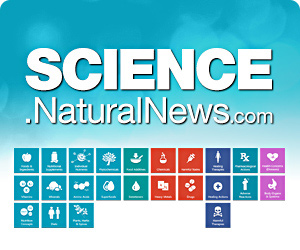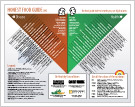
(Natural News) The health industry is full of diets, exercises and therapies for stress relief. But researchers from the U.S., Hungary and the U.K. suggest a more down-to-earth stress buster – with dirt.
In their study, which was published in the journal Psychopharmacology, the team found that Mycobacterium vaccae, a bacterium found in soil, produces an anti-inflammatory fatty acid that can reduce inflammation and even prevent stress.
Prevent stress by spending time with dirt
While earlier studies have revealed the anti-inflammatory benefits of M. vaccae, researchers investigated the molecular mechanism that produces this effect. For the current study, the team investigated the bacterium’s constituents and found a unique triglyceride – a constituent of fat – that exhibited anti-inflammatory qualities.
“We think [that] there is a special sauce driving the protective effects in this bacterium,” explained Christopher Lowry, the corresponding author of the study and an associate professor from the University of Colorado Boulder. “And this fat is one of the main ingredients in that special sauce.”
In the study, the team synthesized the fatty acid, which they called 10(Z)-hexadecenoic acid, in mouse immune cells, specifically the macrophages. Macrophages are immune cells that locate and “eat” harmful compounds in the body, including bacteria, fungi and parasites. Researchers discovered that the fatty acid bound with a signaling protein called proliferator-activated receptor (PPAR) found inside the immune cell. This event, in turn, blocked pathways which promoted inflammation.
Mother Nature's micronutrient secret: Organic Broccoli Sprout Capsules now available, delivering 280mg of high-density nutrition, including the extraordinary "sulforaphane" and "glucosinolate" nutrients found only in cruciferous healing foods. Every lot laboratory tested. See availability here.
From these findings, the researchers were able to come up with a theory of how M. vaccae works. Once the soil bacterium gets inside immune cells, it released the anti-inflammatory fatty acid. Afterward, it binds with the PPAR and prevents the onset of inflammation. This, researchers believed, may help protect a person against stress.
Rethinking the hygiene hypothesis
Scientists have known that, contrary to popular belief, exposure to nature and microorganisms have beneficial effects on the body. In 1989, David Strachan, a British scientist, put forward the “hygiene hypothesis” to explain how this works. The theory proposes that exposure to potentially harmful microorganisms can help a person develop resistance or immunity to them. Thus, when a person secludes him/herself from them, he/she is more likely to get sick.
However, studies after that have shown that there were more factors to consider. Some scientists proposed the “old friends” theory. This states that humans and microorganisms developed together and have a mutually beneficial relationship. While the hygiene hypothesis criticizes humans’ obsession with cleanliness, this theory implicates a wider set of possible reasons. This includes aggressive antibiotic use and staying indoors too much.
This particular study offers a deeper insight into how interacting with microorganisms has beneficial effects on humans. It pointed out how this relationship works on a molecular level. Not only do microorganisms help build immunity to possible malignant effects but they also boost the immune system by preventing inflammation.
The study’s findings have numerous potential applications, especially in mental and children’s health. Overall, the study has shown that spending time with dirt is not so bad. (Related: How gardening can help your immune system.)
Learn more about other helpful bacteria to help boost the body’s health at NaturalHealth.news.
Sources include:
















